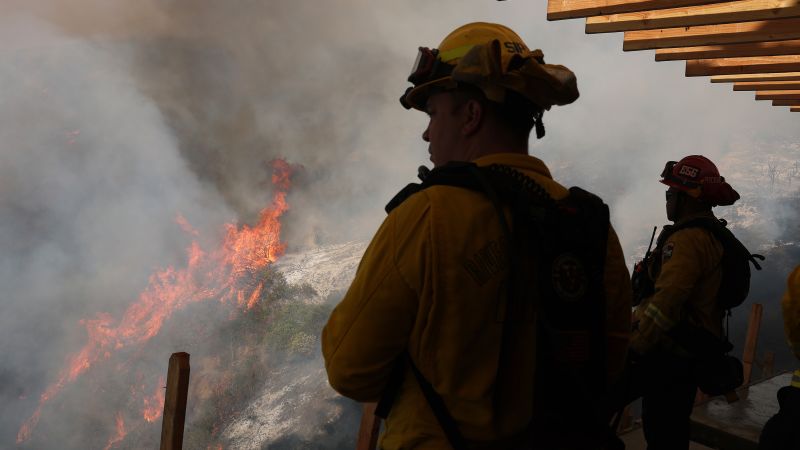 |
|
The recent catastrophic wildfires ravaging Los Angeles County have resulted in a significant loss of life and widespread destruction, prompting urgent calls for assistance and highlighting the devastating impact of climate change. At least sixteen deaths have been confirmed, though the true toll remains unknown due to the ongoing nature of the emergency and the inaccessibility of many affected areas. The Eaton, Hurst, Kenneth, and Palisades fires have combined to burn over 38,000 acres, leaving a trail of devastation in their wake. Homes have been reduced to ashes, infrastructure damaged, and countless lives irrevocably altered. The scale of the disaster necessitates a concerted effort from all levels of government and a significant mobilization of resources to aid in rescue, recovery, and rebuilding efforts.
In response to the unfolding crisis, Los Angeles County Board of Supervisors Chair Kathryn Barger issued a formal invitation to President-elect Donald Trump to visit the region and witness the extent of the damage firsthand. This invitation follows a similar request made by California Governor Gavin Newsom. The intention behind these invitations is multifaceted. Firstly, it represents a call for national support and recognition of the severity of the situation, underscoring the need for federal assistance in addressing the immediate needs of the victims and the long-term challenges of recovery and rebuilding. Secondly, it is a gesture aimed at garnering public attention and highlighting the urgency of the crisis to a national audience. Previous visits by President Trump to wildfire-ravaged areas in California, such as his 2018 visit to Paradise following the Camp Fire, demonstrated the potential impact of high-profile visits in fostering empathy, generating resources, and raising awareness.
President Joe Biden has already taken steps to provide substantial federal support. His administration has announced that the federal government will cover 100% of the costs for the initial response to the fires, demonstrating a commitment to aiding California in combating the disaster. Furthermore, the FEMA Serious Needs Assistance program has been authorized, offering up to $770 to victims as an upfront payment for essential necessities. These immediate financial aids are crucial in providing victims with basic necessities like food, shelter, and clothing, allowing them to navigate the initial stages of recovery. The White House confirmed that President Biden received briefings on the ongoing efforts to suppress the wildfires and engaged in separate calls with Los Angeles County Supervisor Lindsey Horvath and Ventura County Supervisor Kelly Long, signifying continued engagement at the highest levels of government.
The devastating impact of these wildfires underscores the growing threat posed by climate change and the increasing frequency and intensity of extreme weather events. The need for long-term planning, proactive mitigation strategies, and sustained investment in disaster preparedness is paramount. The collective response to this crisis, from the local to the national level, will determine not only the effectiveness of immediate relief efforts but also the resilience of the community in the face of future challenges. The invitation extended to President-elect Trump highlights the urgency of addressing the systemic issues underlying these disasters and the necessity for collaborative action across political divides to overcome this shared crisis. The long road to recovery will require significant resources, sustained community support, and a robust commitment to environmental protection and disaster preparedness.
Source: Los Angeles wildfires: New communities threatened as biggest blaze expands
